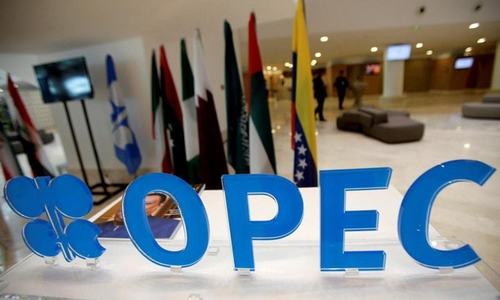AN INTERESTING ‘crude’ battle is on, one in which Russia holds the key. In the process, the Organisation of Petroleum Exporting Countries (Opec) has been relegated to a secondary role.
Not only is the Opec now dependent upon Russia just to set a date for its upcoming ministerial, it is also reliant upon Moscow to plan and charter its next move on the global energy chessboard. The course the oil markets are to take in the coming days and the weeks ahead is largely dependent on Russia and its decisions.
There is a growing consensus in the energy circles that the Opec would roll over its output restraint arrangement for another six months or so. Providing a firm indication of mood within the Opec, Iraq’s oil minister Thamer Ghadhban said last week that the Opec was set to roll over the oil production cuts at least at their current level and could even discuss deepening those.
The comments echo those of the Saudi oil minister Khalid al-Falih. Earlier this month, Falih underlined that the Opec was close to reaching an agreement to extend the output cut deal beyond its current expiry date at the end of June.
A rollover for Opec may be “in the bag”, Falih emphasised.
But the big unknown in the entire equation is Russia. As yet Moscow hasn’t set out its priorities in clear terms. Keeping its cards close to the chest, Russian energy minister Alexander Novak said last week that it was too early to say if the Opec and its allies would extend their agreement to cut oil production. Novak said his country was taking a wait-and-see approach on the Opec+ output agreement, suggesting an extension might not be a fait accompli.
This has left the markets guessing.
And while the Russian stance on extending the output cut arrangement remains foggy, it has reportedly promised Iran of greater help to ensure a way for Tehran to continue exporting significant volumes of its crude.
Russia is willing to step in to help Iran export its crude, a Reuters report said quoting the Russian deputy foreign minister Sergei Ryabkov. Russia would be happy to help (Iran), Ryabkov said underlining it would also be willing to help with Iran’s banking sector as well. Under the US sanctions on financial dealings with Tehran, Iran was finding it difficult to process payments.
But if Russia goes ahead in its vows to help Iran continue exporting significant volumes of crude, it will bring to nought the entire Opec+ exercise of keeping output to the required levels and balance the markets so as to provide a floor to crude prices.
Iran is definitely under pressure. It is looking for help. Late May, reports said, Iran’s crude exports had been down month on month, more than 2 million barrels per day (bpd) off their April 2018 peak of 2.5m bpd. At the time, Reuters said that Iran’s May 2019 exports plunged to just 400,000 bpd.
Iran, however, vehemently contradicts the figure. While denying the report, the Iranian oil minister Bijan Namdar Zanganeh did not offer any alternate figure of its current exports, emphasising it was not in the country’s best interest to do so.
Since the imposition of sanctions by the United States, Tehran has used tactics such as switching off transponders that could allow its oil exports to be quantified and tracked, making any estimation of Iranian exports difficult – if not impossible. However, without providing any details, Iran now claims it has adopted ‘newer tactics’ to shield its exports, as well as ‘new destinations’ for its crude exports.
In the absence of any accurate data about Iran’s oil production and exports, the Opec is likely to struggle in coming up with a game plan at its ministerial. It may have to play blind.
The Russian pledge to help Iran export its crude is a new wild card in the ongoing cat and mouse game. Iran was holding out hope that Europe would have its Instex European payment system in place that would allow Europe to continue purchasing Iranian oil. But the system is not yet running, leaving Iran in a tight spot when it comes to getting its oil out of the country.
Now if Russia follows through with its commitment to assist Iran with its oil exports, or if Europe ever gets its payment system up and running, Opec will have difficulties in chartering its strategy on the issue, while the United States will have a difficult time bringing the Iranian oil exports to zero.
Additionally, while markets are keeping a close eye on China-US trade rift, crude markets are in for a turbulent and bumpy ride. Much is at stake.
Published in Dawn, June 30th, 2019
















































